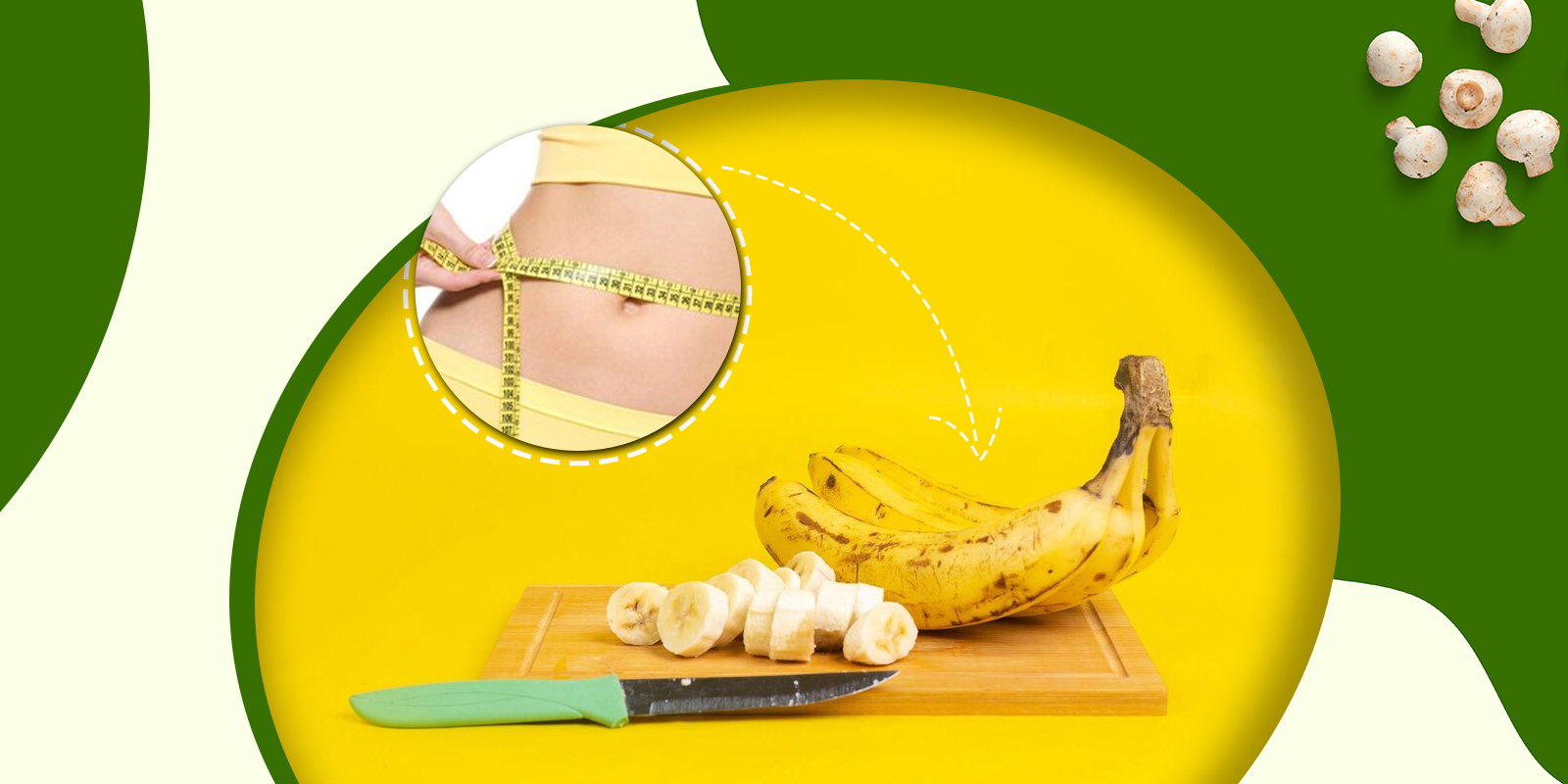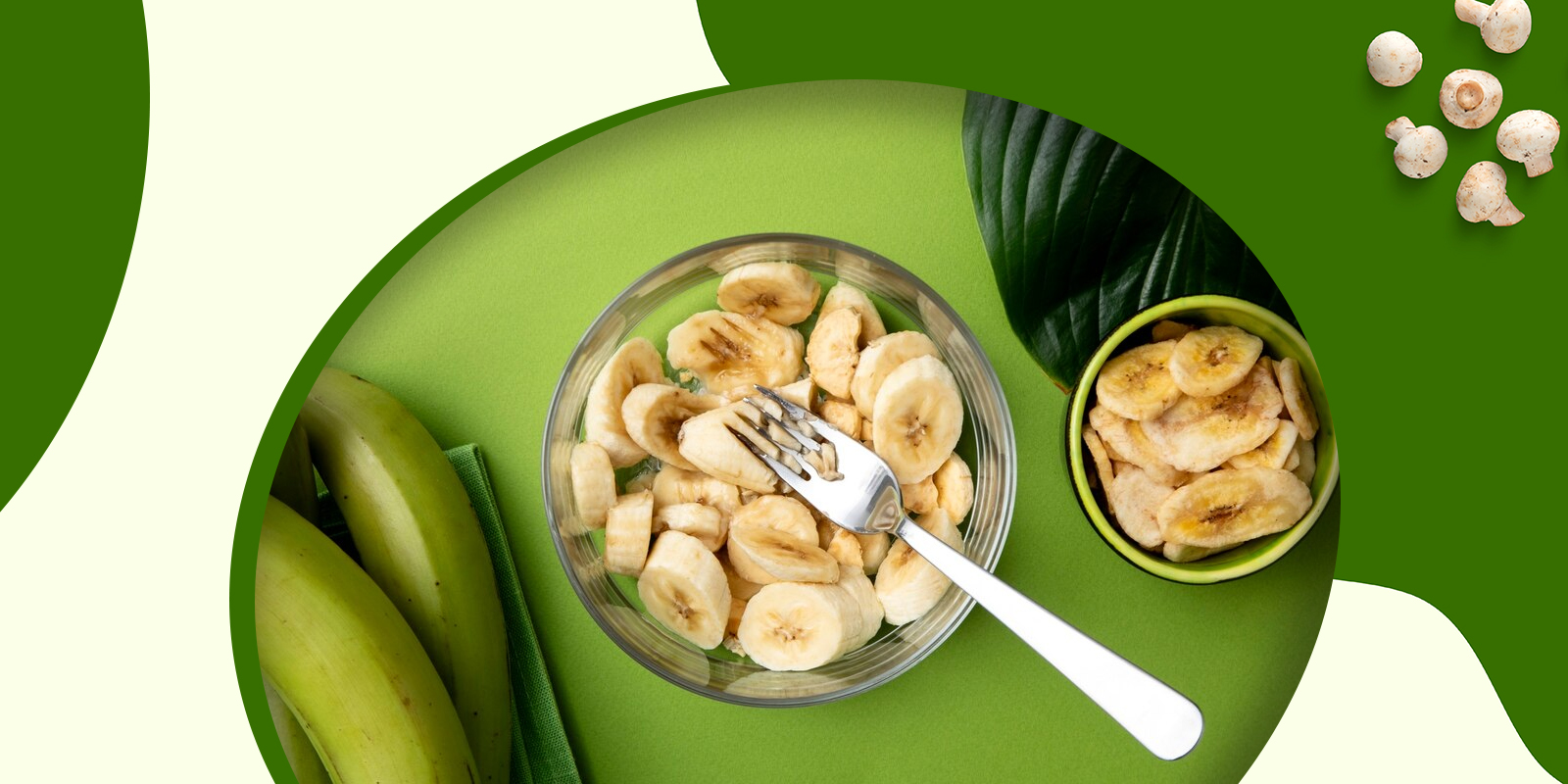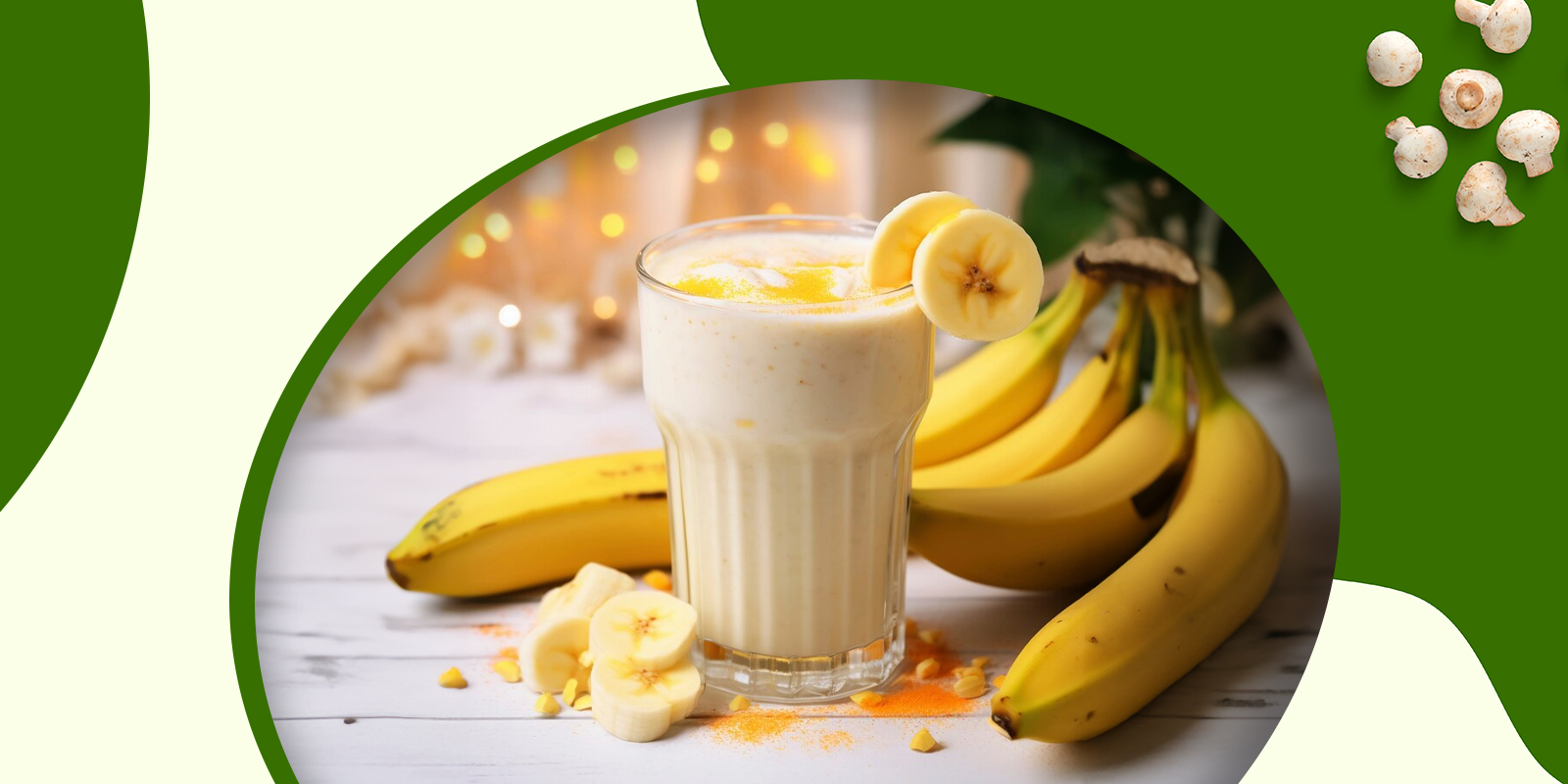While there’s no specific study directly answering ‘Are Bananas Good for Weight Loss?’, bananas are beneficial for a diet focused on health and weight management due to their high fiber content and low calorie count. Concerns about the sugars in fruits like bananas potentially leading to weight gain exist, yet their importance in a balanced diet for providing essential nutrients is undeniable. This article investigates whether bananas can indeed support weight loss efforts or might contribute to weight gain.
Are Bananas Really Good for Weight Loss?
While a single banana packs around 110 calories, which might seem hefty compared to some other fruits like strawberries (clocking in at only 50 calories per serving), their rich vitamin, phytochemical, and fiber content makes them a powerful ally in your journey toward shedding pounds.
“Bananas are a treasure trove of essential nutrients including fiber, potassium, vitamin B6, vitamin C, magnesium, and manganese,” explains Chelsea Tersavich, a physician assistant deeply engaged in nutrition outreach. In her role as a nutrition-outreach fellow through the PA Foundation, Tersavich emphasizes the importance of educating the public on healthier lifestyle choices. “The fiber content in bananas helps keep us feeling satisfied throughout the day, which often translates to consuming fewer total calories,” she adds.
The fiber found in bananas plays a pivotal role in their weight loss benefits. A single banana provides about 12% of your recommended daily fiber intake, directly contributing to weight management. In fact, studies suggest that maintaining a high-fiber diet could reduce the risk of weight gain by as much as 30%.
Diversifying your fruit intake can ensure you’re getting a wide array of essential nutrients while on a diet. While bananas are renowned for their potassium content, other fruits also offer unique benefits. For instance, while pears and apples are higher in fiber, bananas outshine cherries, avocados, or grapes in terms of fiber per serving.

What Role Do Banana Components Play in Weight Loss?
Bananas boast a rich nutrient profile, offering numerous health benefits. They are particularly notable for their high fiber and carbohydrate content, alongside essential vitamins and minerals. Here’s a breakdown of the key components found in a medium-sized banana:
- Potassium: 9% of the Daily Value (DV)
- Vitamin B6: 25% of the DV
- Vitamin C: 11% of the DV
- Magnesium: 8% of the DV
- Copper: 10% of the DV
- Manganese: 14% of the DV
- Fiber: Approximately 3.07 grams
Despite these nutritional riches, a medium banana contains roughly 110 calories, with about 90% of those calories coming from carbohydrates. The majority of the carbohydrates found in ripe bananas are sugars, including sucrose, glucose, and fructose.
In contrast, bananas are low in both fat and protein.
Furthermore, bananas harbor various beneficial plant compounds and antioxidants, such as dopamine and catechin. These compounds contribute to the fruit’s overall health-promoting properties.

Choosing the Right Type of Banana for Weight Loss
Bananas stand out as a convenient and nutritious option for individuals seeking to improve their health, offering a plethora of essential nutrients and being rich in fiber. However, the impact of bananas on weight loss can be influenced by factors such as their size, type, and ripeness.
Unripe green bananas contain resistant starch, a type of carbohydrate that resists digestion in the small intestine. This resistant starch can promote feelings of fullness over extended periods, potentially aiding in weight loss efforts. Conversely, ripe bananas have a higher sugar content, which may lead to spikes in blood sugar levels and might not be as conducive to weight loss goals.
Although bananas are not a direct catalyst for weight loss, their high fiber content supports weight management by promoting satiety, which can help reduce calorie intake. Specifically, green bananas may offer more benefits for those aiming to lose weight. They have a lower glycemic index and contain more resistant starch than their ripe counterparts, aiding in sustained fullness and stable blood sugar levels.
How to Effectively Use Bananas for Weight Loss
Incorporating bananas into your weight loss regimen can be done in various ways, offering both nutrition and satisfaction. Here are some effective strategies:
- Fruit Salad: Mix a banana or two with other seasonal fruits to create a refreshing and filling fruit salad. This delightful bowl can serve as a satisfying snack when hunger strikes, all while supporting your weight loss goals.
- Banana Smoothie: Swap out your regular breakfast with a nutritious banana smoothie. Blend together a banana, yogurt, and your favorite berries for a delicious and filling morning meal. Berries and yogurt complement the nutritional profile of bananas, helping to enhance metabolism and aid in effective weight loss.
While bananas can be utilized in these beneficial ways, it’s essential to be mindful of less favorable options:
- Banana Shakes and Chips: Be cautious with banana shakes and chips when aiming for weight loss. Banana chips are typically deep-fried, adding unwanted calories to your snack. Similarly, banana shakes made with excessive bananas or high-fat milk may contribute to weight gain rather than loss. It’s crucial to enjoy these treats in moderation to avoid sabotaging your efforts.
By incorporating bananas into your diet wisely and in moderation, you can harness their nutritional benefits to support your weight loss journey effectively.

A Few Ways to Prepare Banana Dishes for Weight Loss
Bananas can be a nutritious addition to your diet, especially if you’re aiming to shed some pounds, thanks to their abundant fiber content and the presence of resistant starch in unripe bananas. Here are a few simple yet satisfying ways to prepare banana dishes with weight loss in mind:
Banana and Oats Smoothie: Blend together 1 cup of rolled oats, 2 tablespoons of chia seeds, 3/4 cup of milk, 1 medium banana, and 1/2 large mango in a blender until smooth. This creamy smoothie packs a punch of fiber and protein, helping you stay fuller for longer periods.
Strawberry Banana Smoothie: Combine 1 cup of strawberries, 1 medium banana, and 1/2 cup of Greek yogurt in a blender. Blend until smooth to create a refreshing smoothie rich in fiber, protein, vitamin C, and antioxidants from the strawberries.
Banana and Nut Butter: Slice a banana and spread 1 tablespoon of almond or peanut butter on top. This simple yet satisfying snack is loaded with protein and healthy fats, providing a filling option to curb hunger between meals.
As with any food, it’s essential to enjoy bananas in moderation and as part of a well-balanced diet that takes into account your overall calorie intake and physical activity levels. By incorporating these delicious banana dishes into your routine, you can harness their nutritional benefits to support your weight loss journey effectively.

Important Considerations When Losing Weight with Bananas
When embarking on a weight loss journey with bananas as part of your diet, it’s vital to take several key factors into account:
- Fiber Content: Bananas are packed with fiber, which can help you feel full for longer periods and reduce cravings, ultimately supporting weight loss efforts. Incorporating high-fiber foods like bananas can aid in weight loss by curbing calorie intake and preventing excessive snacking.
- Resistant Starch: Unripe green bananas contain resistant starch, which slows down sugar absorption and promotes prolonged feelings of fullness, making them a preferable option for weight loss compared to ripe bananas. Resistant starch contributes to weight loss by delaying digestion and reducing hunger.
- Glycemic Index (GI): Ripe bananas have a higher GI than unripe ones, leading to more significant spikes in blood sugar levels. Opting for unripe bananas with a lower GI can be advantageous for weight loss, helping to stabilize blood sugar and manage cravings.
- Nutritional Value: Bananas are brimming with essential nutrients such as fiber, potassium, vitamins, and minerals, which are crucial for overall health and can bolster weight loss efforts. However, it’s important to note that the nutritional composition of bananas may vary based on factors like size, type, and ripeness.
- Moderation: While bananas can certainly be part of a healthy weight loss plan, moderation is key. Consuming one to two bananas per day is typically recommended to avoid excessive calorie intake and ensure a well-rounded nutrient profile.
- Personal Response: Individual responses to bananas can differ. While some individuals may tolerate and benefit from regular banana consumption, others may need to consume them in moderation based on their body’s unique response to different foods.
By considering these factors and incorporating bananas thoughtfully into your diet, you can harness their nutritional benefits to support your weight loss goals effectively and sustainably.
FAQS
Are Bananas Bad for Weight Loss?
No, bananas are not inherently bad for weight loss. They are a nutritious fruit that can be part of a balanced diet aimed at weight loss. Bananas are relatively low in calories and high in fiber, which can help you feel full longer and may reduce the overall amount of food you eat. However, like any food, they should be consumed in moderation as part of a balanced diet that includes a variety of fruits and vegetables.
How Many Calories Are in One Banana?
On average, a medium-sized banana (about 118 grams) contains approximately 110 calories. Smaller bananas can have as few as 90 calories, while larger ones can contain up to 135 calories or more.
Is A Banana a Carbohydrate?
Yes, bananas are primarily composed of carbohydrates. They contain simple sugars like glucose, fructose, and sucrose, as well as dietary fiber. A medium-sized banana typically contains about 27 grams of carbohydrates, of which 3 grams are dietary fiber and 14 grams are sugars. The carbohydrate content contributes to bananas’ energy-giving properties.
Are Bananas a Good Source of Protein?
Bananas are not a significant source of protein. A medium-sized banana contains about 1.3 grams of protein. While bananas provide a small amount of protein, they are better known for their carbohydrate content, especially their fiber and natural sugars. For higher protein needs, consider pairing a banana with a protein-rich food like yogurt, nuts, or peanut butter.
Are Frozen Bananas Good for Weight Loss?
Yes, frozen bananas can be good for weight loss in the same way fresh bananas are. Freezing a banana does not significantly alter its nutritional content. They can be a convenient and refreshing snack or dessert option, especially when blended into smoothies or eaten as a frozen treat. Like fresh bananas, frozen bananas should be consumed as part of a balanced diet focused on portion control and nutritional variety.
Is A Banana a Good Breakfast for Weight Loss?
Yes, a banana can be a good component of a breakfast for weight loss, as it provides energy, fiber, and essential nutrients to start the day. Pairing a banana with sources of protein and healthy fats, such as Greek yogurt or almond butter, can make for a more balanced meal that supports weight loss goals by keeping you fuller for longer and providing sustained energy.
Conclusion
In conclusion, asking ‘Are Bananas Good For Weight Loss?’ finds its answer in their beneficial role within a balanced diet, whether the goal is weight reduction or maintaining wellness.
Evidence supports that incorporating fruits and vegetables, such as bananas, is advantageous for weight loss objectives. The high fiber content of bananas elevates their nutritional profile, marking them as a particularly healthful choice.
By adding bananas to your diet, along with other nutritious foods, their benefits can be leveraged to enhance overall health and well-being. Remember, the key to achieving and sustaining a healthy weight lies in balance and moderation.

